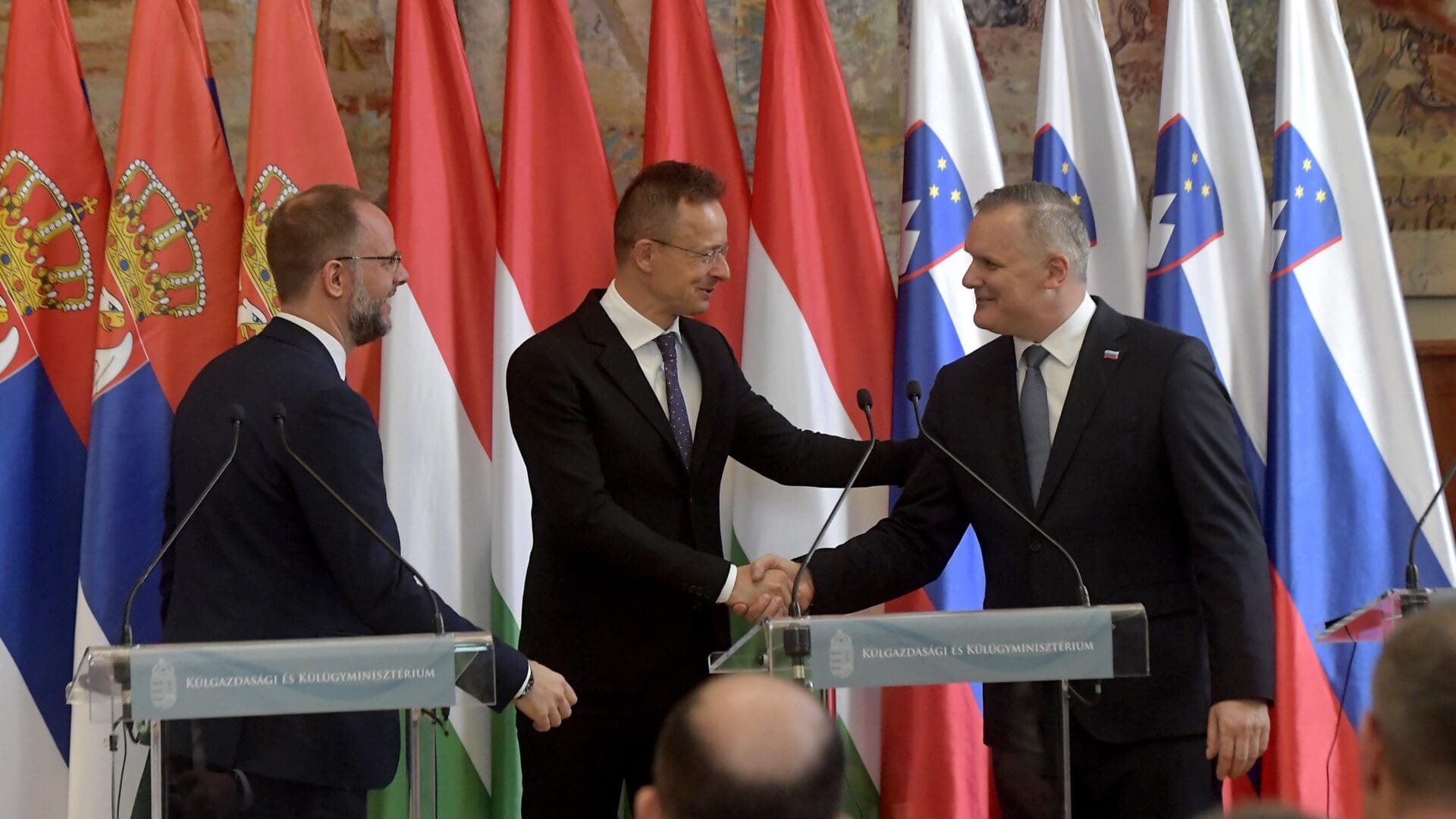Hungarian Minister of Foreign Affairs and Trade Péter Szijjártó hosted Serbian State Secretary for Energy Veljko Kovačević and Slovenian Minister of Energy Bojan Kumer in Budapest on Tuesday. Following the discussions, an agreement was reached for the establishment of a joint power exchange between Hungary, Slovenia, and Serbia, with operation potentially commencing in the second half of this year. This initiative holds promise in significantly bolstering the security of energy supply for all participating nations.
During the press conference following the meeting, FM Szijjártó expressed gratitude to his Serbian and Slovenian counterparts for their persistent efforts over recent months and years in establishing the joint regional power exchange, known as the BlueSky Project.
‘On the one hand, this will enhance the security of our energy supply, facilitating swift and unhindered electricity trade between our nations. Moreover, with a larger market and increased volumes, we anticipate more favourable pricing,’ Szijjártó stated. He added that
the organized regional power exchange will markedly enhance the region’s security of energy supply,
allowing Central Europe to set a precedent for energy integration across the continent.
The Hungarian foreign minister highlighted the significance of recognizing the cooperation between EU Member States and a candidate country for EU membership. ‘We are taking a significant step towards integrating the Western Balkan region into the EU’s energy framework,’ he remarked. He also welcomed the involvement of the German-French energy exchange company in supporting this initiative and ensuring the modernization of operations for system operators.
Nuclear Energy – The Most Efficient Means of Electricity Supply for Hungary
In his statement, Péter Szijjártó underscored Hungary’s unique energy landscape, noting its lack of coastline and limited natural gas and oil reserves. Consequently, he emphasized that nuclear energy offers the most efficient means of electricity supply for the country. This rationale led the government to decide on expanding nuclear capacity.
He mentioned that the expansion of the Paks power plant will elevate its capacity from the current 2,000 to 4,400 megawatts by the start of the next decade. He noted the positive progress of the investment, highlighting recent significant milestones. ‘Moreover, our solar capacity has surged eightfold over the last five years, reaching 5,600 megawatts,’ FM Szijjártó underlined. This surge implies a heightened demand for grid development within Hungary, underlining the crucial significance of enhancing cross-border electricity capacity and fostering regional cooperation.
The minister underscored that in the current era energy supply faces threats globally, as evidenced by recent challenges in various regions. These threats stem partly from inadequate infrastructure and partly from the politicization and ideological framing of energy issues. ‘The surrounding threats and crises underscore the heightened significance of cross-border energy cooperation grounded in mutual respect,’ he emphasized.
Szijjártó stressed that a stable energy supply is essential for both national security and economic stability.
‘We cannot and do not wish to operate in isolation. We are interdependent with our partners, understanding that disruptions in one country’s energy supply can lead to serious problems for others,’ he said.
According to Szijjártó, Hungary’s aim is to establish highly integrated energy systems in the region to foster closer cooperation. This ambition is particularly pertinent for electricity, given the anticipated 50 percent increase in demand across Central Europe by 2030. ‘In Hungary, the ongoing record levels of investment necessitate a growing demand for electricity,’ he highlighted.
The Hungarian foreign minister commended the country’s pivotal role in the global automotive revolution, acknowledging the significant contribution of major German vehicle manufacturers, eastern suppliers, and the forthcoming battery factories. These developments, he noted, are generating tens of thousands of jobs, driving sustained growth, and concurrently escalating the demand for electricity.
Related more on energy:








